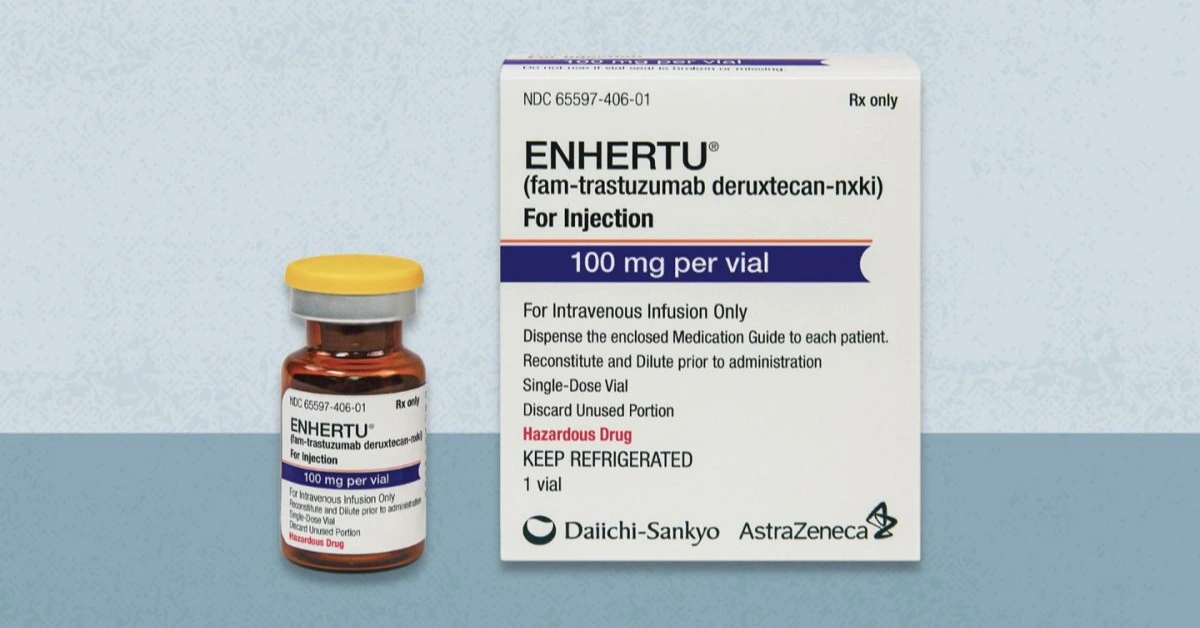
U.K. – AstraZeneca and Daiichi Sankyo have secured their seventh FDA approval for Enhertu (trastuzumab deruxtecan), broadening its use as a second-line treatment for patients with HER2-low and HER2-ultralow metastatic breast cancer.
This approval moves Enhertu earlier in the treatment pathway, offering an alternative to chemotherapy for patients whose HR-positive tumors have progressed following endocrine therapy.
Notably, the drug is now also approved for patients with extremely low HER2 biomarker levels.
Enhertu is specifically indicated for patients with HR-positive, HER2-low metastatic breast cancer, characterized by an immunohistochemistry (IHC) score of 1+ or 2+ or negative for in situ hybridization (ISH).
The approval also includes patients with HER2-ultralow breast cancer, defined as an IHC score of 0.
This marks a significant shift in treatment options, positioning Enhertu as a viable choice ahead of chemotherapy for this patient group.
The FDA’s decision is based on data from the DESTINY-Breast06 trial, a key highlight at last year’s ASCO congress.
The study demonstrated Enhertu’s superior efficacy, with a response rate exceeding 60% and a 38% improvement in progression-free survival (PFS) compared to chemotherapy.
Patients treated with Enhertu achieved a median PFS of more than a year, with benefits observed in both HER2-low and HER2-ultralow patients, though the effect was notably more pronounced in the HER2-low group.
Based on these results, trial investigators have proposed that Enhertu could establish itself as a new standard of care for HER2-low and HER2-ultralow tumors in metastatic breast cancer patients who have exhausted endocrine therapy options.
Enhertu is already approved for HR-positive, HER2-low breast cancer following endocrine therapy under data from the DESTINY-Breast04 trial.
However, the inclusion of DESTINY-Breast06 data in the label, along with the HER2-ultralow group, significantly broadens its reach.
This expansion could make Enhertu an option for over 90% of patients in this category, according to estimates.
While the drug’s efficacy is promising, there are concerns about the risk of severe side effects, particularly interstitial lung disease (ILD), which may surpass the risks typically associated with chemotherapy.
These side effects could influence how widely the expanded label is adopted in clinical practice in the U.S.
Despite these risks, Enhertu remains a blockbuster drug, with global sales reaching over US $2.7 billion in the first nine months of 2024, a substantial increase from US $1.8 billion in the same period in 2023. This new FDA approval is expected to further drive growth for the drug.
Regulators in Europe, Japan, and other regions are also reviewing the DESTINY-Breast06 data, with decisions anticipated in 2025.
Commenting on the approval, Dave Fredrickson, AstraZeneca’s head of oncology and hematology, emphasized the importance of tumor testing.
He stated, “This approval highlights the importance of testing metastatic breast cancer tumors for detectable staining with a standard IHC test to identify those who may be eligible for treatment with Enhertu following endocrine therapy.”
XRP HEALTHCARE L.L.C | License Number: 2312867.01 | Dubai | © Copyright 2025 | All Rights Reserved